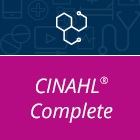Nursing & Health Sciences Research Journal
Abstract
Background: Heart failure with reduced ejection fraction (HFrEF) is associated with increased mortality, morbidity, and readmission rates. Evidence-based practice outlines that HFrEF patients should be on guideline-directed medical therapy (GDMT), including medication from four categories: renin-angiotensin system inhibitors, β-blockers approved for the treatment of heart failure, aldosterone antagonists, and sodium-glucose cotransporter 2 inhibitors. Nurse-led patient advocacy for patients to be discharged on GDMT can help reduce 30-day readmission rates in patients with HFrEF in an inpatient heart failure unit. The purpose of this project was to implement a new practice involving the utilization of a discharge form and empowering nurses to advocate for patients through education. Methods: A collaborative team initiated this quality improvement project utilizing Lewin’s Change Management Model of Unfreeze, Change, and Refreeze to reduce 30-day readmission rates for HFrEF patients. The project included nursing education, creating and using a discharge form as a tool for nurse-led advocacy, and creating a Heart Failure Committee. Patients with heart failure on an inpatient telemetry unit who had a reduced ejection fraction of 40% or less were included in this project. Patients were excluded if they had a preserved ejection fraction greater than 40%, were transferred or discharged from another level of care, transitioned to hospice, or expired. Results: A total of 205 patients met the inclusion criteria and were included in this quality improvement project. Of these 205 patients, 11 were readmitted within 30 days, a readmission rate of 5.4% for HFrEF patients. Conclusion: Nurse-led advocacy demonstrated positive outcomes with a 30-day readmission rate of 5.4% (n = 11 for all-cause readmissions and 2.9% (n = 6) for heart failure readmissions. The implementation of an HFrEF discharge form facilitated and streamlined nurse-led advocacy. The discharge form and nurse-led advocacy positively impacted the unit’s overall 30-day readmission rate for all heart failure patients (both preserved ejection fraction and reduced ejection fraction), reducing it from 17.96% in fiscal year 2023 to 16.0% in fiscal year 2024 so far. This reduced rate is 4.1% below the Center for Medicare and Medicaid Services (CMS) hospital comparison benchmark of 20.1%.
Recommended Citation
Talavera, L. M., Turco, M., Gonzalez, H., Chang Martinez, C., Wintersteen, D., Villadamigo, S., Palau, A., Perez, M. L., Delgado, C., Cardona, S., Davis, C., Ramirez, G., Larranaga, M., Muniz, B., & Bundy, J. G. (2024). Nurse-led Advocacy in Reducing 30-Day Readmission Rates for Heart Failure Patients with Reduced Ejection Fraction. Nursing & Health Sciences Research Journal, 7(1), 127-135. https://doi.org/10.55481/2578-3750.1203
Creative Commons License

This work is licensed under a Creative Commons Attribution-NonCommercial-No Derivative Works 4.0 International License.


